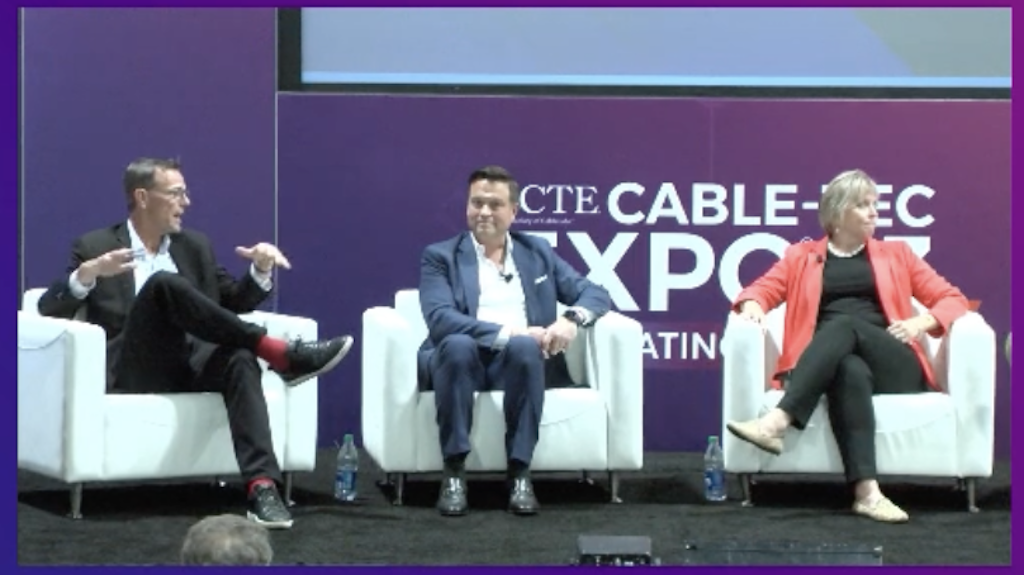Cable Companies Looking to Stay Competitive Amid Public Grant Programs
Cable companies can leverage low upgrade costs and network operating experience to win grants, executives said.
Jake Neenan

October 18, 2023 – Cable companies are planning to push back on subsidized broadband projects from competitors near their coverage areas, executives said on Tuesday.
Cable companies provide broadband with copper coaxial cable, but fiber-optic cable and fixed wireless technology have been growing in popularity.
Jay Lee, chief technology officer at cable provider ATX, pointed to research from Dell’Oro Group which projects cable will lose 5 percent of its broadband market share by 2025, largely to fiber and fixed wireless.
“The competition is real, from both fiber and fixed wireless,” Ed Shrum, vice president of engineering at major cable company Cox said at the Cable-Tec Expo.
But cable companies are looking to stay competitive as the Joe Biden administration rolls out its $42.5 billion Broadband Equity, Access and Deployment program, which heavily prioritizes fiber.
“With respect to RDOF and BEAD,” Lee said, referencing another major broadband grant program, cable companies “can very easily edge out” competing bids from providers using other technology.
Cable companies are touting future deployments of new chip technology like DOCSIS 4.0, which enables faster speeds, but the real edge in grant applications will come from low costs to upgrade to fiber, Lee said.
He pointed to the HFC – hybrid fiber-coaxial – networks many cable companies already operate. In these networks, fiber handles data transfer between access points and servers while individual homes are connected to the network via coaxial cable.
Upgrading those coaxial segments to fiber costs far less than laying a new fiber network from scratch, as many competitors will be looking to do, Lee said.
Shane Portfolio, senior vice president of engineering at Charter, said cable companies should emphasize their incumbent status to stay competitive, both in grants and with customers.
“Being an operator is a very hard thing to do,” he said. “And to do it well is even harder.”
For Shrum, the strategy is more than a mitigation effort. He said Cox plans to expand its coverage through federal subsidy programs in the coming years.
“RDOF and BEAD, we’re aggressively pursuing those avenues for growing subscribers and increasing our base,” he said.







